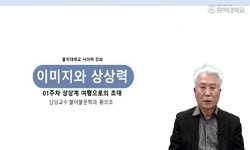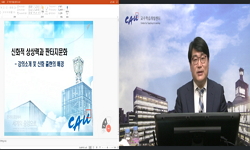본 연구는 상상력 강조 과학수업 프로그램을 개발하여 상상력 강조 과학수업 프로그램이 중학생의 과학성취도, 상상력 및 과학흥미도에 어떤 영향을 미치는지 확인하는데 목적이 있다. 이 ...
http://chineseinput.net/에서 pinyin(병음)방식으로 중국어를 변환할 수 있습니다.
변환된 중국어를 복사하여 사용하시면 됩니다.
- 中文 을 입력하시려면 zhongwen을 입력하시고 space를누르시면됩니다.
- 北京 을 입력하시려면 beijing을 입력하시고 space를 누르시면 됩니다.
상상력 강조 과학수업이 중학생의 과학성취도, 상상력 및 과학흥미도에 미치는 효과 = The effects of Imagination-emphasized science program on scince achievement, imagination and interest in science of middle school students
한글로보기https://www.riss.kr/link?id=T13818337
- 저자
-
발행사항
서울 : 숭실대학교 교육대학원, 2015
-
학위논문사항
학위논문(석사) -- 숭실대학교 교육대학원 , 융합영재교육전공(교원) , 2015. 8
-
발행연도
2015
-
작성언어
한국어
- 주제어
-
발행국(도시)
서울
-
형태사항
; 26 cm
-
일반주기명
지도교수: 이경화
- 소장기관
-
0
상세조회 -
0
다운로드
부가정보
국문 초록 (Abstract)
본 연구의 대상은 서울특별시 소재한 중학교의 2학년 두 학급을 선정하여 한 학급은 실험집단, 다른 학급은 통제집단으로 배치하였다. 실험집단에는 본 연구자가 개발한 상상력 강조 과학수업 프로그램을 2015년 3월 9일부터 4월 17일까지 6주간 주 2차시에 걸쳐 총 12차시에 걸쳐 실시였고 통제집단에는 일반적으로 사용하는 과학수업을 진행하였다.
사전, 사후 검사에는 학업성취도 검사, 이경화(2014)가 제작한 표준화된 ‘중학생용 통합창의성 검사’, OECD/PISA에서 활용한 흥미도 조사 문항을 한국과학교육학회에서 ‘과학교과목’에 대한 흥미도 조사문항으로 번안한 것을 사용하였다. 실험 전에 학업성취도, 상상력 및 흥미도의 집단 간 동질성을 확인하였다. 또한 실험집단과 통제집단 간에 프로그램에 의한 과학학업성취도, 상상력 및 흥미도 향상도 차이를 알아보기 위해 SPSS 22.0 프로그램으로 자료 처리하여 t-test와 ANCOVA로 프로그램의 효과성 검증을 실시하였다.
첫째, 상상력 강조 과학수업은 중학생의 과학학성취도의 적용 향상에 통계적으로 유의미하게 효과적인 것으로 나타났다. 하지만 지식과 이해면에서 향상은 있었지만 통계적으로 유의미하지 않았다.
둘째, 상상력 강조 과학수업은 중학생의 상상력 향상에 효과적인 것으로 나타났다.
셋째, 상상력 강조 과학수업은 과학흥미도 향상에 효과적인 것으로 나타났다. 하위변인인 흥미와 즐거움, 도구적 동기유발에서 통계적으로 유의미한 효과가 있었고 긴장감, 자아개념, 학습전략에서는 통계적으로 유의미한 효과가 나타나지 않았다.
위와 같이 본 연구에서 상상력 강조 과학수업은 중학생의 과학지식 적용, 상상력 및 과학에 대한 과학흥미도를 향상시키는 데 효과적이었음을 확인하였다. 그러므로 상상력 강조 과학수업 프로그램이 학생들의 과학지식 적용 및 상상력 증진교육을 위해 중학교에서 널리 활용될 수 있기를 기대한다.
본 연구는 상상력 강조 과학수업 프로그램을 개발하여 상상력 강조 과학수업 프로그램이 중학생의 과학성취도, 상상력 및 과학흥미도에 어떤 영향을 미치는지 확인하는데 목적이 있다. 이 프로그램은 이하영 외(2014)이 재구조화한 상상력 유형에 따라 목표와 적절한 상상력을 배치하고, Egan의 상상력 인지도구들로 내용을 구성하고, Osborn의 상상력 유도 질문법을 사용하여 개발되었다.
본 연구의 대상은 서울특별시 소재한 중학교의 2학년 두 학급을 선정하여 한 학급은 실험집단, 다른 학급은 통제집단으로 배치하였다. 실험집단에는 본 연구자가 개발한 상상력 강조 과학수업 프로그램을 2015년 3월 9일부터 4월 17일까지 6주간 주 2차시에 걸쳐 총 12차시에 걸쳐 실시였고 통제집단에는 일반적으로 사용하는 과학수업을 진행하였다.
사전, 사후 검사에는 학업성취도 검사, 이경화(2014)가 제작한 표준화된 ‘중학생용 통합창의성 검사’, OECD/PISA에서 활용한 흥미도 조사 문항을 한국과학교육학회에서 ‘과학교과목’에 대한 흥미도 조사문항으로 번안한 것을 사용하였다. 실험 전에 학업성취도, 상상력 및 흥미도의 집단 간 동질성을 확인하였다. 또한 실험집단과 통제집단 간에 프로그램에 의한 과학학업성취도, 상상력 및 흥미도 향상도 차이를 알아보기 위해 SPSS 22.0 프로그램으로 자료 처리하여 t-test와 ANCOVA로 프로그램의 효과성 검증을 실시하였다.
첫째, 상상력 강조 과학수업은 중학생의 과학학성취도의 적용 향상에 통계적으로 유의미하게 효과적인 것으로 나타났다. 하지만 지식과 이해면에서 향상은 있었지만 통계적으로 유의미하지 않았다.
둘째, 상상력 강조 과학수업은 중학생의 상상력 향상에 효과적인 것으로 나타났다.
셋째, 상상력 강조 과학수업은 과학흥미도 향상에 효과적인 것으로 나타났다. 하위변인인 흥미와 즐거움, 도구적 동기유발에서 통계적으로 유의미한 효과가 있었고 긴장감, 자아개념, 학습전략에서는 통계적으로 유의미한 효과가 나타나지 않았다.
위와 같이 본 연구에서 상상력 강조 과학수업은 중학생의 과학지식 적용, 상상력 및 과학에 대한 과학흥미도를 향상시키는 데 효과적이었음을 확인하였다. 그러므로 상상력 강조 과학수업 프로그램이 학생들의 과학지식 적용 및 상상력 증진교육을 위해 중학교에서 널리 활용될 수 있기를 기대한다.
다국어 초록 (Multilingual Abstract)
Two classes of 8th grade students of middle school in Seoul participated in this study. Imagination-emphasized science program was applied to the experimental group while regular program was applied to the control group. This study was carried out for 12 hours from 9th of March through 17th of April. The science achievement test, Standardized 'integrated creative tool for middle students' by Lee(2014) and interest in science(The Korean Association for Science Education adapted OECD/PISA Interest in Mathematics into) were used to identify the effects. The homogeneity was confirmed between two groups in pre-tests. By using the SPSS Win 22.0 program, the T-test, ANCOVA were performed for statistical process and result analysis.
The results of this study are as follows :
Firstly, in the knowledge, understanding of the science achievement test there was no significant difference between two groups. But in the application of the science achievement test there was statistically meaning difference.
Secondly, there was significant effect on the imagination test.
Thirdly, there was significant effect on the interest in science. And interest in and enjoyment of science and instrumental motivation in science of the sub-factors, there was significant effect. But there was no significant difference in the science learning anxiety, self-concept, learning strategies.
In this study, the effects of Imagination-emphasized science program on the science application, imagination, interest in science of the Middle school students was identified. Therefore, I hereby suggest that ‘Imagination-emphasized science program’ could be utilized as a useful program in the middle school.
The purpose of this study was to develop Imagination-emphasized science program and to examine the effects of Imagination-emph asized science program on science achievement, imagination and interest in science. Researcher developed this program, consi...
The purpose of this study was to develop Imagination-emphasized science program and to examine the effects of Imagination-emph asized science program on science achievement, imagination and interest in science. Researcher developed this program, consid ering the types of imagination(Lee & Chin 2014) suitable to instructional objectives, constructing contents with Egan’s imagin ative cognitive tools and appling Osborn’s imaginative questions.
Two classes of 8th grade students of middle school in Seoul participated in this study. Imagination-emphasized science program was applied to the experimental group while regular program was applied to the control group. This study was carried out for 12 hours from 9th of March through 17th of April. The science achievement test, Standardized 'integrated creative tool for middle students' by Lee(2014) and interest in science(The Korean Association for Science Education adapted OECD/PISA Interest in Mathematics into) were used to identify the effects. The homogeneity was confirmed between two groups in pre-tests. By using the SPSS Win 22.0 program, the T-test, ANCOVA were performed for statistical process and result analysis.
The results of this study are as follows :
Firstly, in the knowledge, understanding of the science achievement test there was no significant difference between two groups. But in the application of the science achievement test there was statistically meaning difference.
Secondly, there was significant effect on the imagination test.
Thirdly, there was significant effect on the interest in science. And interest in and enjoyment of science and instrumental motivation in science of the sub-factors, there was significant effect. But there was no significant difference in the science learning anxiety, self-concept, learning strategies.
In this study, the effects of Imagination-emphasized science program on the science application, imagination, interest in science of the Middle school students was identified. Therefore, I hereby suggest that ‘Imagination-emphasized science program’ could be utilized as a useful program in the middle school.
목차 (Table of Contents)
- 국문초록 ⅴ
- 영문초록 ⅶ
- Ⅰ. 서론 1
- 1. 연구의 필요성 및 목적 1
- 국문초록 ⅴ
- 영문초록 ⅶ
- Ⅰ. 서론 1
- 1. 연구의 필요성 및 목적 1
- 2. 연구 문제 6
- Ⅱ. 이론적 배경 7
- 1. 상상력의 의미와 발달 특성 7
- 1) 상상력의 의미와 유형 7
- 2) 상상력 발달의 특성 11
- 2. 과학교육과 상상력 13
- 1) 과학자의 탐구과정과 상상력 13
- 2) 과학의 본성과 상상력 17
- 3) 과학교육목표와 상상력 17
- 4) 과학교육에서 상상력의 의의 19
- 3. 상상력을 강조한 수업 22
- 1) 상상력을 강조한 수업의 내용 구성 22
- 2) 상상력을 강조한 수업 방법 26
- 3) 상상력을 증진시키기 위한 수업모형 30
- 4. 학업성취 요인과 과학 학업성취도 31
- 1) 학업성취와 요인 31
- 2) 과학 학업성취도와 수업변인 32
- 5. 흥미와 과학흥미도 34
- 1) 흥미의 개념과 교과에 대한 흥미 형성 34
- 2) 과학흥미도 35
- Ⅲ. 연구방법 38
- 1. 연구대상 38
- 2. 연구 도구 38
- 1) 검사도구 38
- 2) 실험도구 : 상상력을 강조한 과학 수업프로그램 42
- 3. 연구절차 45
- 1) 사전 검사 45
- 2) 실험 처치 47
- 3) 사후 검사 49
- 4. 자료처리 49
- Ⅳ. 연구결과 및 해석 50
- 1. 과학 학업성취도 향상 효과 50
- 2. 상상력 향상 효과 53
- 3. 과학흥미도 향상 효과 54
- Ⅴ. 논의 및 결론 57
- 1. 논의 57
- 2. 결론 및 제언 60
- 참고문헌 62
- 부록 67












